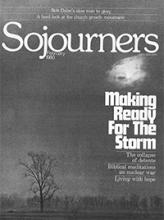As the enemy drew nearer to Moscow the attitude taken by its inhabitants in regard to their position did not become more serious, but, on the contrary, more frivolous, as is always the case with people who see a great danger approaching. At the approach of danger there are always two voices that speak with equal force in the heart of a person: one very reasonably tells the person to consider the nature of the danger and the means of avoiding it; the other even more reasonably says that it is too painful and harassing to think of the danger, since it is not in a person's power to provide for everything and escape from the general march of events; and that it is better to turn aside from the painful subject til it has come, and to think of what is pleasant. In solitude a person generally yields to the first voice; in society to the second. So it was now with the inhabitants of Moscow. It was long since there had been so much gaiety in Moscow as that year ( War and Peace, Leo Tolstoy).
Then he said to the disciples, "The days are coming when you will long to see one of the days of the Son of Man, They will say to you, “Look there!” or “Look here!” Do not go, do not set off in pursuit. For as the lightning flashes and lights up the sky from one side to the other, so will the Son of man be in his day. But first he must endure much suffering and be rejected by this generation. Just as it was in the days of Noah, so will it be in the days of the Son of man. They were eating and drinking, and marrying and being given in marriage, until the day Noah entered the ark, and the flood came and destroyed all of them. Likewise, just as it was in the days of Lot: they were eating and drinking, buying and selling, planting and building, but on the day that Lot left Sodom, it rained fire and sulphur from heaven and destroyed all of them--it will be like that on the day that the Son of man is revealed ( Luke 17:22-30).
Read the Full Article

